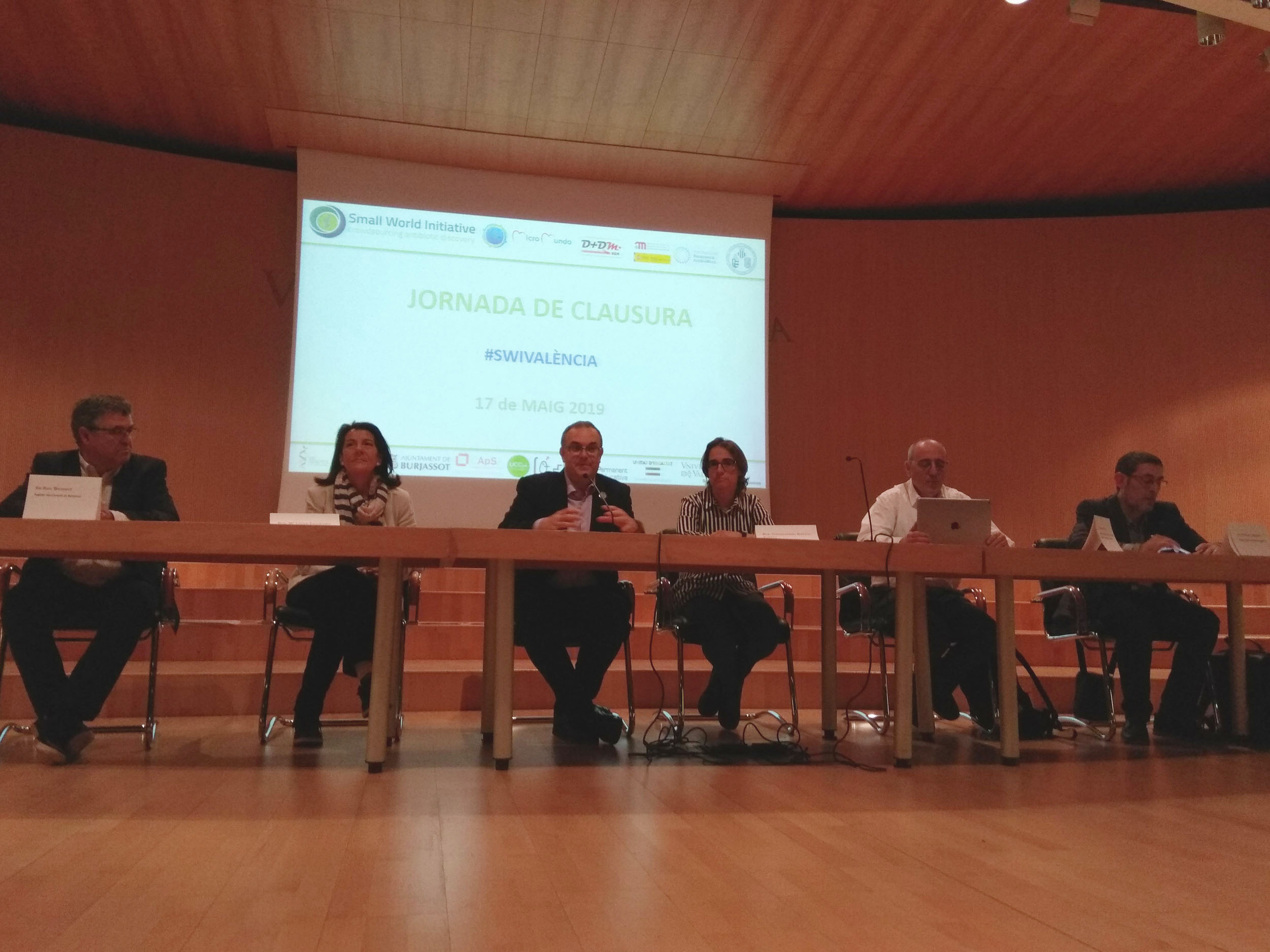
The second edition of the international Small World Initiative-Tiny Earth-Micromundo project (SWI@València 2.0), which was held at the Universitat de València in the 2018/2019 academic year, concluded this Friday at the Charles Darwin Hall of the Burjassot-Paterna Campus. This project to discover new antibiotics and promote scientific culture and which has been coordinated by Professor of Biological Sciences Sergi Maicas has been carried out with a Service Learning (ApS) strategy that has involved students and teaching staff assigned to different centres (Biology, Pharmacy, Medicine and ETSE).
The Small World Initiative (SWI) is a citizen science project originated in 2012 at the American University of Yale. With a collaboration strategy aimed at the discovery of new antibiotics, it aims to bring scientific culture and biomedical research closer to pre-university educational levels in order to promote research vocation. Emulating the discovery of penicillin by Alexander Fleming involves a group of volunteers with the aim of involving the public in the expansion of scientific knowledge. Currently, parallel actions are being developed to the international projects Tiny Earth and the Spanish-Portuguese Micromundo, in which the University also participates.
In the project of the University of Valencia students of the academic institution (73 students of the Faculties of Biology and Pharmacy) and high school students (313 corresponding to 13 centres); and university teachers (14, also counting Administration and Services Staff) and high school teachers (19) participate. The project has sampled 186 points, isolating nearly 3,700 strains, ten of which had antibiotic capacity against Gram - and 278 against Gram + bacteria. The project has included in this edition a monographic conference on soil science, as well as a pilot experience in three levels included within the Aula Natura projects where the Faculty of Biology, the IES Vicent Andrés Estellés and the CEIP San Juan de Ribera of Burjassot.
The Closing Session of the project was held in the Charles Darwin room of the Burjassot Campus, with the presence of Ferran Suay (director of the Teacher Training and Educational Innovation Service), Inmaculada García-Robles (vice-dean of the Faculty of Pharmacy) , María Luisa Ferrándiz (vice-dean of the Faculty of Biology), Roc Senent (councilor of the City Council of Burjassot) and Rafael Castelló (director of the Language Policy Service).
The SWI@València 2.0 project has the collaboration of the Vice-Rectorate for Educational Policies and Quality, the Equality Service, the Language Policy Service and the Scientific Culture and Innovation Unit-Chair for the Dissemination of Science (University of Valencia). Also from the Department of Tourism, the City Council of Burjassot and Fotocopias Burjassot.
SWI@València is a member of the CAPSA program of the University of València and the consortium of Valencian universities UVApS. It has the endorsement of the Microbiology Teaching and Diffusion Group of the Spanish Society of Microbiology (SEM) and of the National Plan of Resistance to Antibiotics of the Spanish Agency of Medicines and Health Products (AEMPS).
The complete list of participants can be found in the project's blog, http://www.swi.blogs.uv.es.










